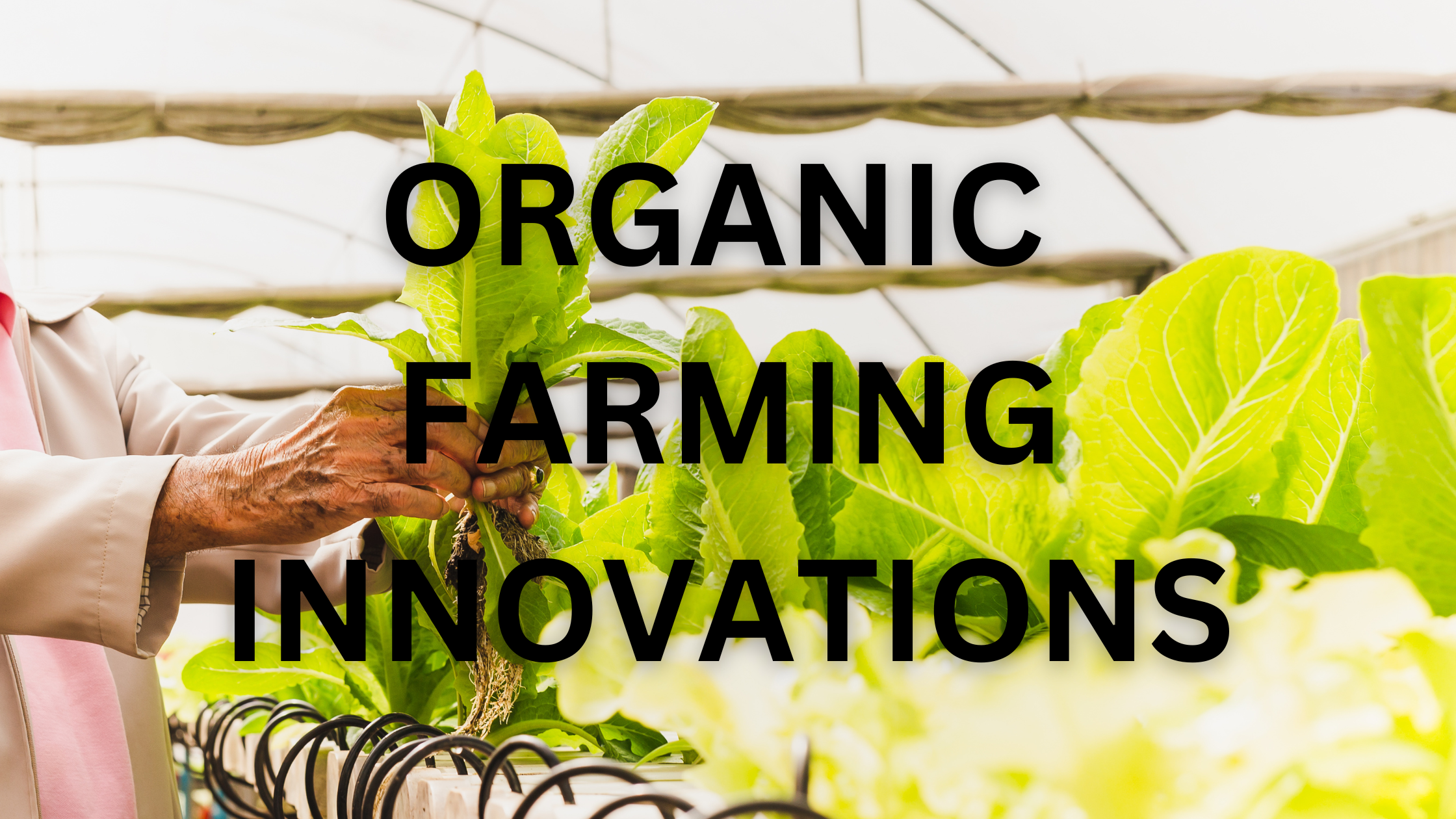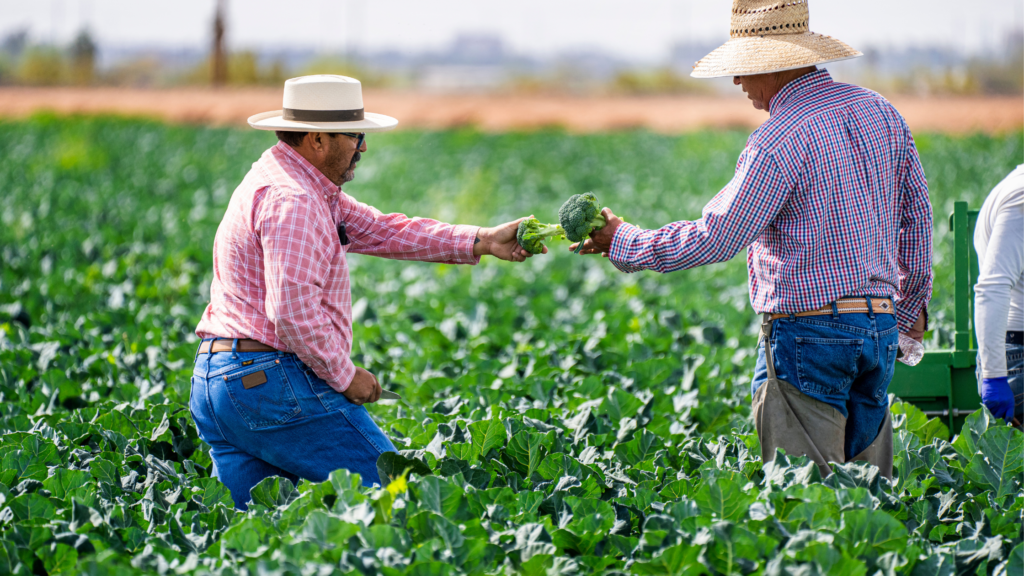
Harvesting Tomorrow – The Future Trends and Innovations in Organic Farming
Introduction to Organic Farming innovations and Trends
In the realm of agriculture, a notable shift towards sustainable practices is underway, and organic farming is at the forefront of this transformation. This article navigates through imminent organic farming trends and pioneering organic farming innovations that are poised to define its future.
Organic farming, gaining prominence globally, signifies a departure from conventional methods. The emphasis on natural processes, devoid of synthetic pesticides and fertilizers, characterizes its essence. Delving into the evolving landscape, we see that embracing more sustainable and eco-friendly practices intricately ties the future of agriculture to progress.
Innovations in organic farming extend beyond traditional cultivation methods. Technology integration, precision farming, and sustainable crop management are emerging as key components. These practices not only enhance efficiency but also contribute to the overall health of the ecosystem.
The organic movement is not merely a trend; it represents a fundamental shift towards healthier and more environmentally conscious food production. By exploring and adopting the latest organic farming trends and innovations, we pave the way for a future where agriculture harmonizes with nature.

Technology Integration in Organic farming innovations
In the dynamic landscape of agriculture, a significant trend gaining momentum is the integration of technology in organic farming. This shift towards technological innovation marks a crucial development in cultivating sustainable practices. Its also good to learn about Soil and its relationship with organic farming.
The adoption of precision farming techniques stands out as a noteworthy aspect of this trend. Farmers are leveraging advanced tools and equipment to optimize resource usage, ensuring that crops receive the precise nutrients they need. Furthermore, the implementation of IoT-enabled monitoring systems offers real-time insights into the conditions of the organic farms, facilitating proactive decision-making.
These technological organic farming innovations go beyond conventional practices, addressing the challenges of traditional agriculture. By enhancing efficiency and promoting sustainable methodologies, technology is playing a pivotal role in shaping the future of organic agriculture.
As we embrace these technological strides, it becomes evident that the synergy between modern technology and organic farming is not just a trend but a strategic approach towards fostering a more sustainable and productive future for agriculture.
Sustainable Crop Management Strategies
The adoption of sustainable crop management strategies intricately ties the trajectory of the organic farming future. In navigating towards a more eco-conscious approach, practices such as crop rotation, companion planting, and natural pest control are emerging as cornerstones in ensuring the long-term health and productivity of the soil.
Crop rotation is a vital practice that involves alternating the types of crops grown in a particular area over seasons. This not only disrupts the life cycle of pests and diseases but also helps in maintaining soil fertility by balancing nutrient levels.
Companion planting is another ingenious strategy, where mutually beneficial plants are grown together. This not only enhances biodiversity but also acts as a natural pest deterrent, promoting a healthier and more resilient crop ecosystem.
Embracing innovations in organic farming, these sustainable strategies not only mitigate environmental impact but also contribute to building robust, nutrient-rich soil. By adopting these practices, the organic farming community is paving the way for a more sustainable and resilient agricultural future. All these will result in successful organic farming.
Organic Certification and Consumer Awareness
In the era of heightened health and environmental awareness, the demand for organic produce is experiencing a notable surge. This surge places emphasis on the significance of organic certifications and underscores the pivotal role of consumer awareness in steering the course towards sustainable farming practices.
Organic certifications serve as credible indicators of adherence to stringent organic standards. They assure consumers that the produce is free from synthetic pesticides and chemicals, aligning with their health and environmental values. This recognition not only fosters trust but also bolsters the market for organic products.
However, the impact extends beyond labels; it delves into the realm of consumer awareness. Educating consumers about the benefits of choosing organic goes hand in hand with the certification process. When consumers are informed about the positive environmental and health outcomes of supporting organic farming, they become active contributors to a more sustainable future.
It’s worth noting that organic food products can boost the immune system, adding another layer of appeal for health-conscious consumers. As the demand for organic products grows, the synergy between organic farming trends, certifications, and informed consumers becomes pivotal in shaping a future where sustainable farming practices are the norm.
Global Perspectives on Organic Agriculture
When exploring the landscape of organic farming trends on a global scale, it becomes evident that different regions are approaching this sustainable practice in diverse ways. Delving into international perspectives unveils a tapestry of experiences, where each region contributes to the broader narrative of organic farming innovations.
Success stories from various corners of the globe showcase the positive outcomes of embracing organic agriculture. From increased biodiversity to improved soil health, these triumphs inspire others to follow suit. However, this journey is not without challenges. Different climates, soil types, and socio-economic factors present unique hurdles that demand tailored solutions.
Sharing these experiences isn’t just about showcasing accomplishments but also about acknowledging the challenges faced. By understanding the lessons learned globally, the organic farming future becomes a collaborative effort. It’s a tapestry woven with shared insights, where each region contributes to a sustainable and resilient future for agriculture.
Challenges and Opportunities for the Future
In navigating the landscape of organic farming trends, it is crucial to address both the challenges and opportunities that lie ahead. While organic farming innovations have gained momentum, scalability remains a persistent challenge. The sheer scale of conventional agriculture poses a hurdle, requiring strategic solutions for widespread adoption.
Market competition is another obstacle, as organic produce often contends with conventional counterparts. However, within these challenges lie abundant opportunities. Collaboration among stakeholders, from farmers to policymakers, can foster a more supportive ecosystem for organic farming.
Moreover, governmental policies play a pivotal role. Supportive policies can incentivize farmers to embrace sustainable practices, creating a conducive environment for growth. Seizing these opportunities can pave the way for a flourishing organic farming future, where challenges become stepping stones towards a more sustainable and resilient agricultural landscape.